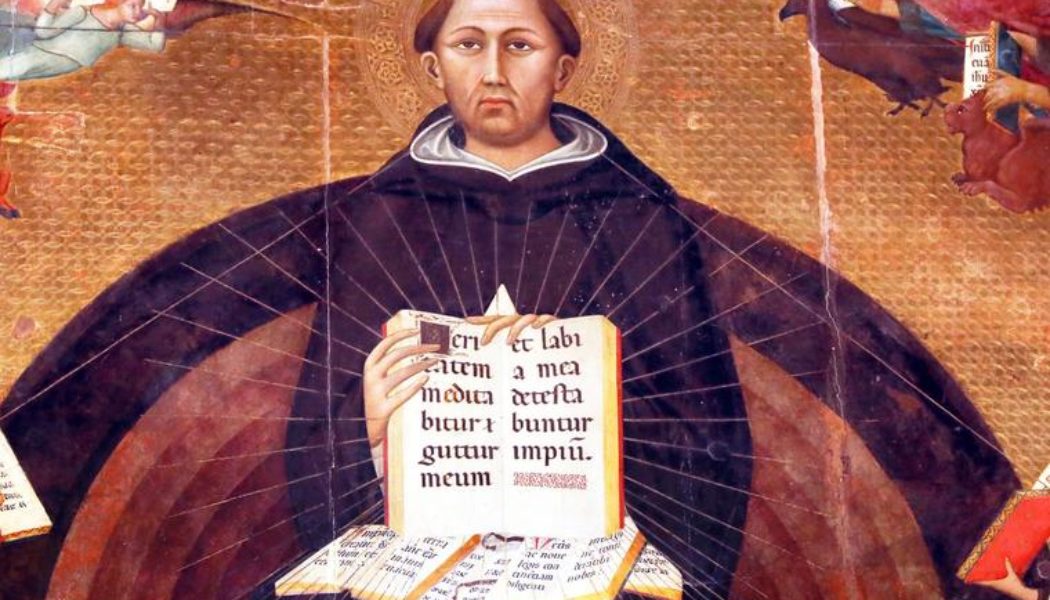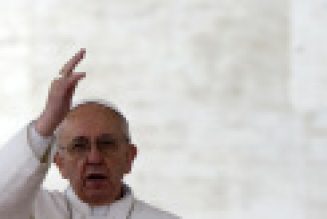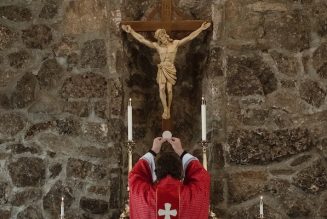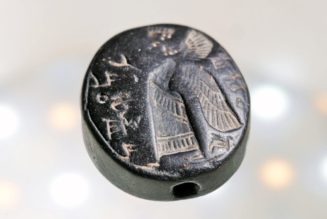
Pray that God sends us another Aquinas for our day.
July 18 is a special day this year for Dominicans: it marks the 700th anniversary of the canonization of St. Thomas Aquinas. St. Thomas Aquinas (c. 1225-1274) is arguably the most important saint in the Order of Preachers after its founder, St. Dominic.
He’s certainly had a great impact on the Church at large. Popes have repeatedly recommended philosophy and theology be taught according to the insights of the “Angelic Doctor” (though that recommendation in recent decades has more often been honored in the breach than in principle).
He came into the world into a privileged family in the south of Italy. Their plans were for Thomas to become a Benedictine and an abbot. God’s plans were otherwise. This was the era of the rise of the great mendicant (“begging”) religious orders, the Dominicans and Franciscans. The “mendicant” orders lived lives of radical poverty, relying on alms for the support of their members. They represented a development in Catholic religious life, for which the primary model had remained the Benedictines, with their abbeys, communities of self-sustaining prayer and work. The Dominicans retained the community aspect of prayer but chose to focus on preaching and parish mission work, rather than living in staying primarily in self-sufficient communities.
It was for that reason that his family opposed Thomas’s vocation: becoming a Dominican not only meant not being on a rising ecclesiastical career track, but it also involved the renunciation of one’s wealth. They did their utmost to dissuade the young man — including imprisoning him in the family jail and sending a prostitute to seduce him — to no avail. Finally, like Francis’s family, a certain Catholic sensibility kicked in, realizing “your arms are too short to box with God” and Thomas made his way to the Dominicans.
His life was one of teaching (mostly in Paris) and writing (think Summa theologiae, Summa contra Gentiles). He encountered opposition in his own day, as he employed the rediscovered philosophy of Aristotle to illumine Catholic theology. The Franciscans were particularly vehemently opposed: whereas they emphasized God’s will and human affections, Thomas focused on reason. Will separated from reason becomes caprice and arbitrary. While the Franciscans sought to keep balance, later thinkers (think William of Ockham) did not, leading to the philosophy of nominalism, which so accentuated divine omnipotence that there was ultimately no reason (at least that you could discern) why God did what he did. Nominalism led to the Protestant Reformation and remains a powerful force today: take away God and substitute man, and you have modern thinking that denies objective truth, babbling about “your truth” and “my truth,” turning reality into mere labels that people arbitrarily attach to things and thereby give them meaning.
But let’s not go far afield into nominalism. It’s a bit schematic to press the contrast between Dominican and Franciscan philosophy too far because both remained tempered by the Church’s teaching and tradition. That said, while Thomas insists on rationality, he does not deny the emotions (which he calls “passions”), because he arranges the Summa’s whole treatment of morality around the cardinal virtues that guide them.
On this anniversary, we can obviously point to the centrality Thomistic thought and its focus on reason has played in Catholic philosophy and theology. I think those are points upon which we should reflect.
For all our claims about “following the science” or the need for “enlightenment” and all our paeans to “education” and an “educated citizenry,” the most cursory survey of the Western world today points to its radical irrationality. We burn incense to “reason” but ignore reason and the hard work of reasoning. Public discussion increasingly revolves around “feelings” and “emotions,” a radical subjectivity that leads to such inherently irrational babble as “my truth” and “your truth.”
This emotional subjectivity is not simply secular: it is increasingly infecting the Church. Indeed, one can argue that the leitmotif of the current “synodal process” is, at root, emotional. There’s a lot of talk about “welcoming.” The truth is the Church has always and continues to welcome any and all, based on the norms of the Gospel. But the “welcoming” about which so much prattle today is generated has nothing to do with offering people the Good News of Jesus Christ from the get-go. Rather, it is a “feeling of welcome,” whether hearing that Good News in its unadulterated form greets or grates on the listener.
That is a wholly other question.
In a very real sense, that Good News ought to both greet and grate. It greets by calling human beings to what they most truly and profoundly are supposed to be. At the same time, it grates by challenging them to examine and, often, renounce what they are.
That tension is unavoidable, because man is both attracted to and repelled by God. He’s attracted because God is his Supreme Good, his Summum Bonum. At the same time, he’s repelled, he’s driven to run and hide, because he recognizes the dissonance between himself and the Thrice All-Holy God. That experience is common to all people, from Adam covering behind the fig leaves to Isaiah aware of his sinfulness to every person that stands before the decision for or against God.
That is the proper kind of welcome the Church should provide. Reason makes that clear. But we live in an anti-rational, emotionalized world … and Church.
Philosophy is an unavoidable adjunct to theology and religion because, while God is beyond all human categories, our human categories are not utterly alien to God. There are points of intersection between the Divine and human (or we could not understand God), and we need categories to make sense of the partial and fragmentary but true knowledge we have of God.
Revelation exists because God wants to make sense to us. His creation makes sense, which is why science as we know it originated in the medieval world (as opposed to its stillbirths in the medieval Arab world or the Far East) because that world understood a creation that made sense and could be intelligibly probed. That is also why Thomas fought errors like Siger of Brabant’s “double truth” theory — something could be true for religion but false for, say, science — which essentially underpins the divorce between reason and faith.
Seven hundred years after St. Thomas’s canonization, he’d be amazed at the degree to which modernity has regressed into irrationalism. Pray that God sends us a St. Thomas Aquinas for our day.








